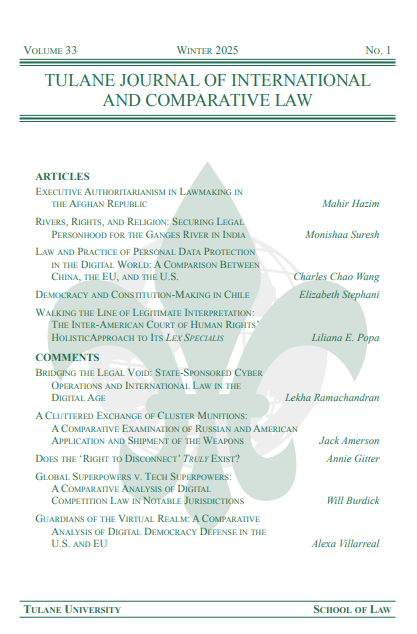Executive Authoritarianism in Lawmaking in the Afghan Republic
Abstract
The political system and government structure in Afghanistan have long been contentious issues, reflecting the diverse nature of Afghan society along ethnic, tribal, linguistic, religious, social, and political lines. Even today, with the Taliban in power, there is ongoing debate among the international community, Afghans, and other stakeholders on how to establish a political system and governmental structure that truly represents and reflects the diversity of Afghan society. The overthrow of the Taliban by the U.S. and its allies in 2001 marked a significant turning point in the contemporary history of Afghanistan, as the country adopted a new constitution in 2004.
By examining the legislative process, politics, and decree authority in the Republic government (pre-2021) formed under the 2004 Constitution, this Article argues that the Afghan Republic presented an extreme case of usurpation of legislative powers by the executive. Such executive usurpation was witnessed in the concentration of legislative powers in the executive, including the executive’s introduction of bills, a presidential veto with high override threshold, and decree authority and its overuse. Moreover, over half of the legislative decrees issued by the executive were unconstitutional in their process. Lastly, the Republic was plagued by the lack of an independent judiciary with clear judicial review power. Based on an empirical review of the legislative acts promulgated during President Ghani’s administration, this Article demonstrates that the executive overwhelmingly dominated the legislative process, revealing itself as an authoritarian force.
